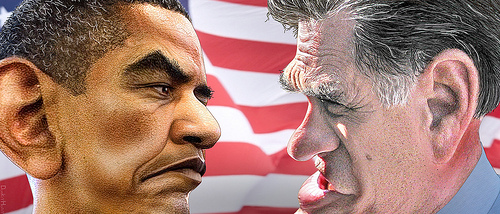Today we have a guest post from our fellow TSP board member, Kyle Green. Kyle is teaching Sociological Research Methods and wanted to share this activity that he is having his students complete while watching the presidential debates. Thanks Kyle!
I believe that one of the most important skills that a sociology major learns is how to recognize a good/bad argument, how to recognize when someone is using the right/wrong data to support their view, and to think about how the effectiveness of different types of argument varies by both topic and situation.
The presidential and vice-presidential debates present a great opportunity to put these skills into use. And it gets the students to think critically about politics, which is never a bad thing.
I require that the students in my research methods class watch any two of the four debates. They are asked to take detailed notes about the types of arguments the participants on each side made and the data they used to support their claims. The notes should also include:
- Self-reflection (How closely do they follow politics? Are they a strong supporter of a particular political party or involved in particular issues? Did watching the debate change their view?)
- What arguments did they find the most or least convincing? Why?
- What type of information was the most or least effective in this format?
- How did the format of the debates affect the arguments used and supporting information presented?
- Did you spot any of the common research errors or logical fallacies we discussed in class?
I have the students bring their notes to the first class after the final debate. I then divide them into groups of three where they have a chance to discuss their observations before have a larger class discussion about the lessons we learned.

Comments 3
Nancy — October 5, 2012
Thanks. I will try this out with my class. Although after the last debate I am not sure if I can handle watching them myself.
Danny — October 11, 2012
Sounds good, but you'd want to make sure it doesn't get too partisan or argumentative.
Kyle Green — October 15, 2012
I agree Danny. That was my biggest concern when I decided to use the debates. The way I avoid getting caught up in which politician is 'right' or 'better' is to always guide the discussion back to the types of information or arguments presented, or pushing people to explain why they found certain ideas or stories to be more convincing. The way that people are much better at deconstructing the arguments of the presidential candidate that they do not like is also a great example of why taking seriously one's position when doing any type of research is important.
Of course, all that being said, it is impossible to stop the conversation from slipping into partisan statements from time to time. But hey, still better than silence....